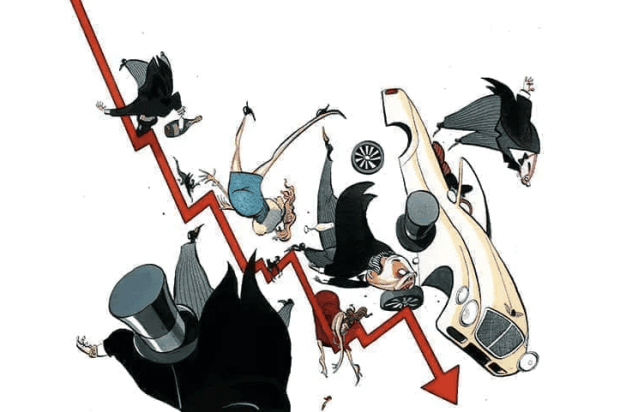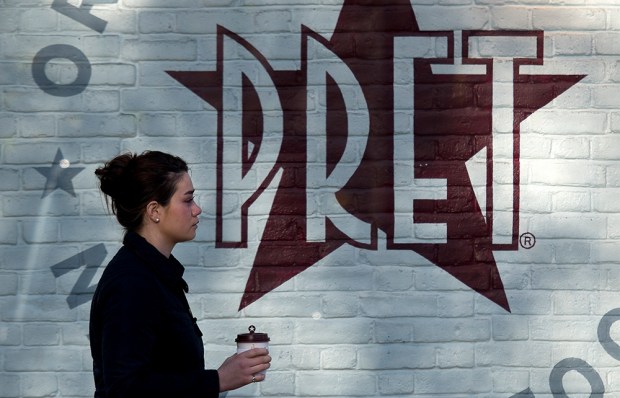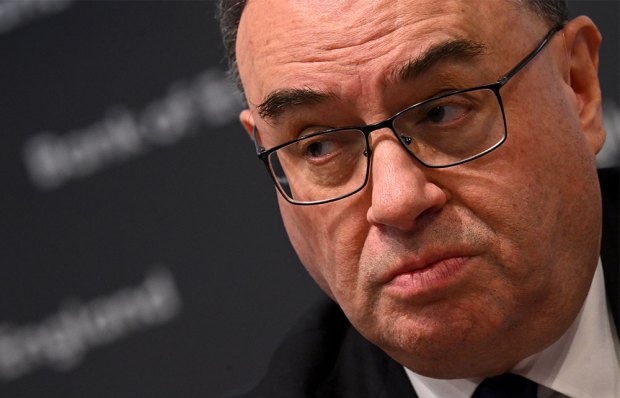The snatching of a 12 per cent stake in BT by French entrepreneur Patrick Drahi, last seen here when he bagged Sotheby’s for $3.7 billion two years ago, could be a good thing if it injects dynamism into the telecoms giant’s late-running plans to install high-speed broadband across the UK. But it’s also part of a wave of fast–moving foreign money hunting undervalued UK assets — which is positive if it fuels capital investment for growth, negative if it makes nothing but fast bucks for private investors.
The logic is simple. The private equity fraternity is laden with cash and global in outlook; what it sees in London is an appetising menu of companies trading on average earnings multiples of around 14 times, compared with roughly 23 times in the US. Their opportunism is focused on mid-range listed UK firms, rather than BT’s FTSE 100 cohort: more than 90 such deals, worth £20 billion, have been booked so far this year.
Recent targets include the AA; security provider G4S; Vectura, which makes medical inhalers; and John Laing, the infrastructure investor. And it’s not all about Americans looking for bargains with more upside potential than they can find at home: the French have quietly bought our building materials industry, while the Chinese are prowling for anything that owns mineral rights or high-tech intellectual property.
Should we care, or is this just one more example of financial Darwinism at work? The Daily Mail rages against private equity players as ‘City plunderers’ and it’s not easy to cite counter-examples in which investee companies have gone on to greater glory. One thing’s for sure: if ministers tell us this trend is ‘a massive vote of confidence in global Britain’, reach for a pinch of salt. It’s more like a giant corporate car-boot sale.
A bid for the Guardian
If I were a private-equity shark seeking a tasty bite that the competition hadn’t spotted, I’d make a cheeky bid for Guardian Media Group. Of course I’d have to persuade its parent, the Scott Trust Ltd (successor of the body established in 1936 by the owning family to safeguard the then Manchester Guardian) to sell. But the brand strength of the title — hobbled as it is by dysfunctional governance, decades of editorial hostility to commercial pressure and a bizarre system of voluntary contributions for online content instead of a paywall — surely offers all the upside the most hard-nosed investor might hope for.
And now would be a very good time to strike. While the Trust seems to be in some disarray, GMG has just parted company, after only 15 months, with American–born chief executive Annette Thomas, reportedly the loser in a power struggle with Guardian editor Katharine Viner. My mole who used to deliver cappuccinos to their stand-off strategy meetings says Thomas is the sort of disciplined media-biz manager whom editors always resist — but succeeded in boosting online revenues and, after initial job cuts to reduce losses, would have pumped more resources into journalism if she’d won co-operation.
A new owner might rehire Thomas but would most likely look for a new editor. The radical Viner would soon find new statues to topple, however: she’d be a shoo-in to follow her predecessor, Alan Rusbridger, as head of an Oxbridge college.
More gongs please
Close scrutiny of the Queen’s birthday honours list — with its emphasis on pandemic heroes and heroines — reveals what might be the beginning of a swing in official opinion: the financial sector is no longer in the doghouse to which it was consigned after the 2008 crash. Among new knights are the departing Lloyds Banking Group chief António Horta-Osório; Professor John Kay, most humane of City economists; and ex banker turned education guru Philip Augar, commended here only last week for his writings on modern City history. Elsewhere are half a dozen medals for ‘financial services during Covid-19’, down to an MBE for one Samantha Marley, a staff member of Barclays’ Hastings branch.
Is this recognition that high-street banks, for all their faults, also continue to play a vital social role? I’d like to think so. But my sympathy is also caught by a plea from the Entrepreneurs Network think-tank for a new ‘Elizabethan Order’ of chivalry that would salute another shunned category: the innovators, especially in technology, who received ‘fewer than one in ten’ honours awarded over the past five years and were ever scarcer in the recent birthday roll-call, a rare exception being a CBE for Julie Deane, founder of the stylish but relatively low-tech Cambridge Satchel Company.
Meanwhile, at The Spectatorwe are doing our utmost to rebalance this lack of recognition through our Economic Innovator of the Year Awards, for which we look forward to a bumper crop of entries by the closing date of 1 July. If you’re a brilliant business creator who feels robbed of a gong, we’re eager to hear from you: just fill in our simple online form at spectator.co.uk/innovator.
Fallen governors
Speaking of statue-toppling, I’m sorry to see the Bank of England yielding to wokery by hiding portraits of former governors and directors suspected of links to the slave trade — starting with one of the commissioners who raised its first capital, Lord Mayor Sir Gilbert Heathcote (1652-1733). But at least today’s governor, Andrew Bailey, can commission exciting new art to fill the gaps. A concrete casting of Mervyn King’s library by Rachel Whiteread? A perpetual video loop of random Mark Carney speech extracts? More conventionally, I like the idea of a conversation piece depicting the half-mad Lord Cunliffe (governor, 1913-18) passing his own deputy and successor Montagu Norman (governor, 1920-44) in a Bank corridor and muttering: ‘There goes that queer-looking fish with the ginger beard again. Do you know who he is?’
Got something to add? Join the discussion and comment below.
Get 10 issues for just $10
Subscribe to The Spectator Australia today for the next 10 magazine issues, plus full online access, for just $10.
You might disagree with half of it, but you’ll enjoy reading all of it. Try your first month for free, then just $2 a week for the remainder of your first year.















Comments
Don't miss out
Join the conversation with other Spectator Australia readers. Subscribe to leave a comment.
SUBSCRIBEAlready a subscriber? Log in